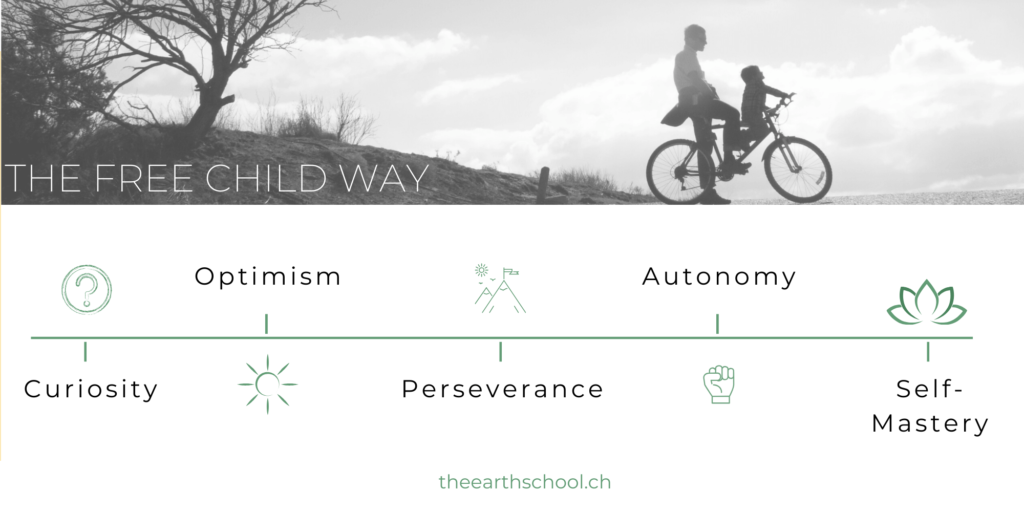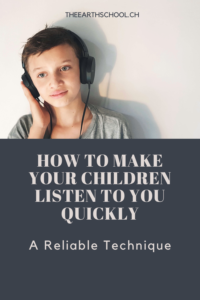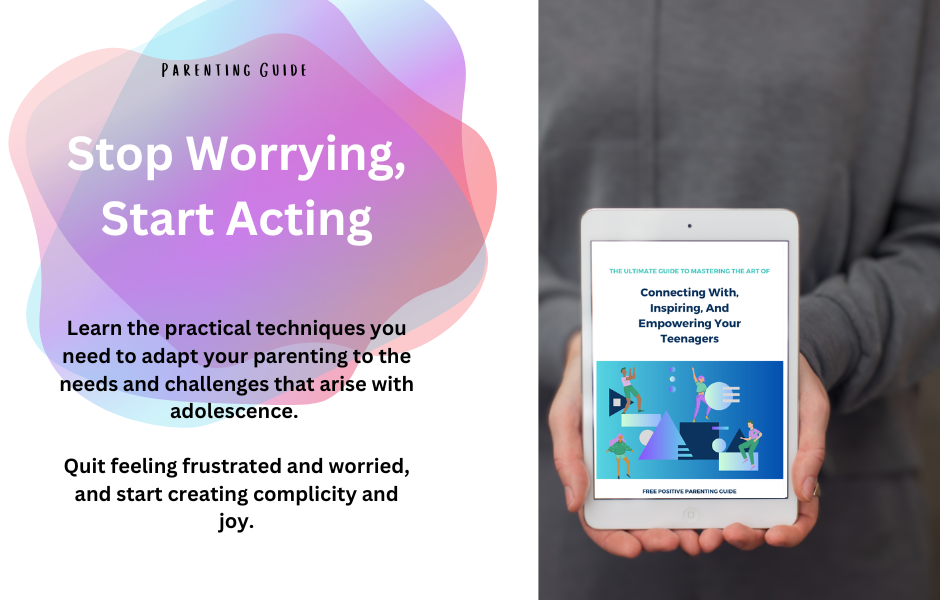
#11 Children’s Needs: An Easy Yet Expert Introduction
 What looks like a meaningless desire: « I want cake for dinner », « I don’t want to leave the park », « I want mommy to come and shower me », « I want that toy! »,… can have its roots in an unanswered need. It can also be your child not being able to make the difference between needs and desires.
But can you? Do you actually know what needs are and which needs our children to have as they grow up?
Needs are physiological or psychological demands that have to be satisfied in order for a child to survive and develop properly.
But here is the trick: children don’t always have the cognitive ability to recognize and express their needs in a proper way, so it is our responsibility as parents to know them, recognize them and understand them.
[Tweet “Behind a child’s whim is often a hidden need”]
If a child’s needs aren’t answered, he cannot nurture the confidence and trust he needs to develop properly. But when our demands meet our children’s needs, then there are no more fights.
You might think: «When I ask something to my child, it is for his own good! ». But is it always?
I can think of two situations when it is not:
What looks like a meaningless desire: « I want cake for dinner », « I don’t want to leave the park », « I want mommy to come and shower me », « I want that toy! »,… can have its roots in an unanswered need. It can also be your child not being able to make the difference between needs and desires.
But can you? Do you actually know what needs are and which needs our children to have as they grow up?
Needs are physiological or psychological demands that have to be satisfied in order for a child to survive and develop properly.
But here is the trick: children don’t always have the cognitive ability to recognize and express their needs in a proper way, so it is our responsibility as parents to know them, recognize them and understand them.
[Tweet “Behind a child’s whim is often a hidden need”]
If a child’s needs aren’t answered, he cannot nurture the confidence and trust he needs to develop properly. But when our demands meet our children’s needs, then there are no more fights.
You might think: «When I ask something to my child, it is for his own good! ». But is it always?
I can think of two situations when it is not:
- when we ask something for our personal comfort
- when we ask something because of external pressure (fear of judgment).
Don’t have time to read now but still interested? Download the PDF
What scientists have to say about needs
The good thing is, they all agree we have needs and we need to fulfill them! Depending on the field they work in, the needs and their number changes slightly but the general picture is always the same: first we need to take care of our survival and then we can focus on other needs. Jacques Salomé, a French psycho-sociologist established 8 needs for children specifically:- Survival Breathing, drinking, eating, sleeping
- Security Feeling protected and cared for. Feeling respected and listened to.
- Socialization Belonging to a family, a group, a belief, an ethnicity
- Recognition Being a part of the family life, to feel useful
- Differentiation Being a person, different from our parents, with our own tastes, thoughts, opinions
- Evolution Knowing that rules, freedom, and boundaries are evolving as the child progresses
- Individualization Having relations, activities and boundaries thought for one-self and not as a general rule
- Reunification Feeling that one can be whole even if we are full of contradictions and different emotions.
The Physiological Needs: We Are All Animals
Obviously, the first stage is for physiological needs, and this is a fairly fixed one (except when you were 15 and so in love than eating and sleeping became secondary!). What is distinctive when it comes to children, is that the younger they are, the more they need adults to help them fill those needs. And as they grow up, as parents, we tend to keep control over those physiological needs when we should our children how to answer them by themselves. If we want our children to learn and understand the difference between needs and desires, we need to give them a chance to experiment, to deeply know what a need is. Let’s take « eating » for example: As a baby, your child is dependent on you to eat, but as he grew up, did you give him more freedom in this field? I don’t mean letting him choose the menu and start a diet of chicken nuggets but more like learning to listen to your appetite. In order to help your child practicing you can let him choose what amount of food he’d like in his plate and not force him to finish when he’s not hungry anymore. Next time, you can remind him that he had too much so maybe he’d like less? Also, eating in front of a screen keeps good communication between stomach (I’m full!) and the brain (let’s keep eating!) so when eating in front of the tv/tablet, your child doesn’t learn to listen to himself. What about drinking? Does your child get access to drinking water anytime without having to ask you? If he’s too small to get to the tap/fridge, does he have a water bottle?
And how do you manage clothes? Does your child get to choose his clothes? Of course, he might be cold sometimes (shorts in winter) and often ridiculous (at what age does the style gene comes to life?) but how can he learn about his needs if he doesn’t get a chance to experiment?
What about drinking? Does your child get access to drinking water anytime without having to ask you? If he’s too small to get to the tap/fridge, does he have a water bottle?
And how do you manage clothes? Does your child get to choose his clothes? Of course, he might be cold sometimes (shorts in winter) and often ridiculous (at what age does the style gene comes to life?) but how can he learn about his needs if he doesn’t get a chance to experiment?
“We learn to do something by doing it. There is no other way.” John HoltAnd finally what about sleep? This one is more tricky for me because I want to respect my children’s rhythm but I also need some time for myself in the evenings. My solution so far is that my children have to be in their room, ready for bed, at a certain time but they can read or listen to stories as long as they want. This last example shows how needs and family rules can co-exist and actually nurture each other. Your family rules become more meaningful and useful when they respect your children’s needs, and your children will respect those rules better if they make sense to them.
Why physiological needs are so important to children
Those are physiological needs. I especially insist on them with parents as we tend to keep control over them. This is not helping. You are not helping your child when you decide what he eats and when he does so, what and when he should drink or what he should wear on what occasion and when he should sleep. This is the base of the pyramid, and there is a reason for that. As a general rule, needs build on each other and when one level of needs isn’t fulfilled, one cannot access the next stage. When you see parenting groups, they are a lot of questions about anger management, emotional outbursts, issues in relation to peers, respect, self-confidence,… Well, have a look at the pyramid, those needs are way up! How can a child master those complex needs if he never got to practice the fundamental ones? Now, to be extra clear, it is our responsibility as parents to make sure that our children’s needs are fulfilled, I am not talking about stopping to care about their body hygiene, their food or their sleep. I am merely suggesting that you change the way you approach it.The Safety Needs: We Are Creatures of Habits
When we think of safety needs, we might think that we are lucky to live in a Western country. But it is a little bit more complex than that. Not leaving in a country at war doesn’t mean you feel safe. The homicide of George Floyd by a policeman reminded us that no one’s safe, even in an apparently rich and democratic country. So what are those safety needs for children? We cannot protect them from the outside world for we have no control over it. We cannot promise them that everything will always be fine. But we can empower them so that they don’t feel powerless. Children, as adults, need stability, predictability, and control to feel safe. Again, as parents, we have a tendency to keep those fields in our hands. Did you guess why? Yes, because we feel safer that way. Our own need for safety overrides our child’s need for autonomy. So should you deny your own needs in favor of your children? You don’t have to. All it takes it to be conscious of it and to make meaningful decisions. You can help your children with stability by creating routines in your life. Children thrive with routines and that says it all. Your life can be a complete mess, you’ll always find room for routines.
You can help with predictability by not always letting your kids know at the last minute that you’re all going somewhere (how many dramas because of that!). A little magic trick here: instead of telling your kids to « come, dinner is ready! » or « hurry up, put on your shoes, we’re late to go to grandma », try « dinner is ready in 10, come whenever you are ready » and « we’re about to visit grandma, you can get dressed whenever you’re ready? ».
Can you feel the difference?
You can help your children with stability by creating routines in your life. Children thrive with routines and that says it all. Your life can be a complete mess, you’ll always find room for routines.
You can help with predictability by not always letting your kids know at the last minute that you’re all going somewhere (how many dramas because of that!). A little magic trick here: instead of telling your kids to « come, dinner is ready! » or « hurry up, put on your shoes, we’re late to go to grandma », try « dinner is ready in 10, come whenever you are ready » and « we’re about to visit grandma, you can get dressed whenever you’re ready? ».
Can you feel the difference?
The Belonging Needs: We are social beings
I am sure, if you are a mom, that you noticed this: humans are social beings. Like, when you’re on the toilets and your kids seem to have such an important thing to tell you 🙂 Most scientists put the need for connection, family, and intimacy in the psychological needs, but truly, I am not sure. I am tempted to add these needs in physiological needs because I believe that they are essential. Anyone who had a baby can tell that their baby asked as much for food as for human contact. Of course, you will die without food and water while you will survive loneliness, but with a price. Loneliness can make big damages. If you’re homeschooling, there is a good chance your child’s need for belonging is fulfilled as you spend a lot of time together.
Though they are different sides to every need and it is important not to forget friendship for example, as your children need to develop and nurture themselves in other relations than family.
The sense of belonging can also find answers in a community, in a national feeling, or in a church. Here is the danger. When you hear of someone in a cult, or who became a nationalist, those are persons who were looking to fulfill their belonging needs.
Better to offer your children a chance to create strong connections and nurturing relations so that they won’t need to associate with groups who advertise intentionally their answer to a belonging need.
If you’re homeschooling, there is a good chance your child’s need for belonging is fulfilled as you spend a lot of time together.
Though they are different sides to every need and it is important not to forget friendship for example, as your children need to develop and nurture themselves in other relations than family.
The sense of belonging can also find answers in a community, in a national feeling, or in a church. Here is the danger. When you hear of someone in a cult, or who became a nationalist, those are persons who were looking to fulfill their belonging needs.
Better to offer your children a chance to create strong connections and nurturing relations so that they won’t need to associate with groups who advertise intentionally their answer to a belonging need.
The esteem needs: where we build self-confidence
We often focus on these needs when it comes to parenting. Because we gear a lot about them. And they definitely are the psychological footing we all need to succeed and live a happy life. Just keep in mind that this is step number 4 in the hierarchy of needs and you should start working from bottom to top. There are two cornerstones in the esteem needs: respect and freedom. Those are not necessarily what comes to our mind when we think esteem needs. You might think that your child needs to be encouraged a lot and to experience success in order to build good self-esteem. You would be right of course. But if they only succeed in activities you planned or organized, you will be part of their success. In order to feel in charge, to feel strong, children need some autonomy here. Giving your children some room to do things by themselves (without you intervening), that’s when you do your best for their esteem needs. Then come recognition and congratulations. Think of it for yourself: if you bake a new cake all by yourself and it’s delicious, you will feel proud. Now imagine the same situation but your mom was on the phone to tell you the steps, she bought the ingredients already and tells you her tips. The cake will still be delicious, but the success won’t feel like yours only. Can you see it?Don’t want to forget about children’s needs? Download our cheat sheet
The self-actualization need: we are spiritual beings
We all want our children to live the best life possible. For some of us, it means being financially safe, for others having good health, or following a faith. I wish for my children to always be free and do what they love, to feel able to realize their dreams, and to find out what’s their mission on Earth. Which can be translated by “I wish them a meaningful life”. And this is where self-actualization comes in. Once all your other needs are fulfilled (because you don’t care about your mission if you’re struggling to feed yourself) as a human, you start looking for something bigger. Spirituality is a natural next step in human life, one often lost and forgotten in Western countries where it was replaced by power and money. This need isn’t for parents to fulfill, this is definitely one that belongs to oneself but as parents, we can make room for it. By taking our children seriously for example, because vocation can come early in life. If your child has a passion, it falls into self-actualization. If your child decides on learning about spirituality, if he gets curious about religions and faith, it falls into self-actualization. Whenever your child wants to learn something new, and the desire comes from himself, it falls into self-actualization.The more freedom you give your children, freedom to think, freedom to have different ideas than you, freedom to experiment, the more room for self-actualization is created.
Children Have Specific Needs Too
I said higher in this post that I consider adults and children like having the same needs. Though it is true, the balance of the needs can be a bit different. Amongst the needs that are especially important during childhood you can find:- The need for sleep, children need way more rest than adults, with newborn sleeping up to 20 hours a day.
- The need for security, children need clear boundaries and limits. This is how they feel the safest.
- The need for stability, which is linked to security. For a good development, children need routines and life habits.
- The need for communication, one of the first things a baby tries to learn is communication.
- The need for freedom, for children can only truly develop themselves with some freedom and trust.
Get your Action Sheet or PDF of this article by filling this form, this adds you automatically to our newsletter where you’ll get weekly goodies!
Thanks for reading this article! As always, I hope it gave you some line of thoughts to explore as well as ideas to act and create a positive change in your life.
Don’t let the inspiration fades and take action right away:
1. Download our cheat-sheet, it’s on the house
2. Decide on the one action you will implement today and write it down
3. Share this article with 3 friends who could benefit from it
4. Save the article in your favorites
As always, I hope it gave you some line of thoughts to explore as well as ideas to act and create a positive change in your life.
Don’t let the inspiration fades and take action right away:
1. Download our cheat-sheet, it’s on the house
2. Decide on the one action you will implement today and write it down
3. Share this article with 3 friends who could benefit from it
4. Save the article in your favorites
 As always, I hope it gave you some line of thoughts to explore as well as ideas to act and create a positive change in your life.
Don’t let the inspiration fades and take action right away:
1. Download our cheat-sheet, it’s on the house
2. Decide on the one action you will implement today and write it down
3. Share this article with 3 friends who could benefit from it
4. Save the article in your favorites
As always, I hope it gave you some line of thoughts to explore as well as ideas to act and create a positive change in your life.
Don’t let the inspiration fades and take action right away:
1. Download our cheat-sheet, it’s on the house
2. Decide on the one action you will implement today and write it down
3. Share this article with 3 friends who could benefit from it
4. Save the article in your favorites
I wish you all the best with your kids, always remember that we all do the best we can at a given moment and don’t judge yourself harshly. Be confident and listen to your intuition. If what you do comes from a place of love, then you’re on the right path.
See you next week for another exciting article!






Don’t Forget To Join Our Community To Get Inspiration And Tips Straight in Your Mailbox
I wish you all the best with your kids. Always remember — we’re all doing the best we can in any given moment, so try not to judge yourself too harshly. Be confident and listen to your intuition. If what you do comes from a place of love, then you’re already on the right path.
If you want more resources, ⬇️ keep scrolling ⬇️
Looking for a way to set boundaries that feel fair for everyone? Here’s your home guide to healthy boundaries.
If your child is or is becoming a teenager, check out our parenting guide for teenagers!







